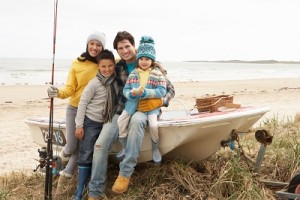- Calls to this hotline are currently being directed to Within Health, Fay or Eating Disorder Solutions
- Representatives are standing by 24/7 to help answer your questions
- All calls are confidential and HIPAA compliant
- There is no obligation or cost to call
- Eating Disorder Hope does not receive any commissions or fees dependent upon which provider you select
- Additional treatment providers are located on our directory or samhsa.gov
Supporting My Child in Their Recovery During the Holiday Season
Contributor: Leigh Bell, BA, writer for Eating Disorder Hope
 Watching your own child suffer is simply agonizing, but you don’t have to play worst-case scenario this Christmas.
Watching your own child suffer is simply agonizing, but you don’t have to play worst-case scenario this Christmas.
Yes, the holidays can be stressful to someone recovering from an eating disorder. There’s more food, friends, and family but less structure during the holidays.
This doesn’t mean your child will relapse. In fact, the holidays may be a joyful time for your son or daughter. All the friends and family may serve as greater support.
Here’s where you come in.
First and foremost, make certain your child works with his or her treatment team to develop a holiday plan. This probably should include a meal plan, a list of tactics to handle triggers, and steps to take if he or she is struggling.
Talk to your child and his or her treatment team about your involvement in maintaining these tactics. If she or he isn’t following the meal plan, are you going to step in? Define your role in the beginning to avoid conflict later.
Help your child maintain support
 It’s probably helpful for your child to continue contact with his or her treatment team during the holidays. Help your child make these appointments and encourage attending them.
It’s probably helpful for your child to continue contact with his or her treatment team during the holidays. Help your child make these appointments and encourage attending them.
If your child is home from college and cannot maintain physical appointments with treatment team members, consider phone sessions.
Create a supportive schedule
Your child is likely on break from school and living with less structure during the holidays. This can cause anxiety in someone with an eating disorder because it creates more space for eating-disordered thoughts. Talk to your child about this.
It may be comforting for your child to create a daily schedule of what he or she wants to do. Look for holiday events in your town. Go ice skating. Start a puzzle or a craft together. Also, be sensitive to your child’s comfort level with houseguests and hosting you may normally do this time of year.
Shift the Focus from Food
 Be intentional with your celebrations and put the focus on togetherness, rather than food, according to an article written for CNN by Kenneth Weiner, a psychiatrist who’s worked with eating disorder from more than 30 years.
Be intentional with your celebrations and put the focus on togetherness, rather than food, according to an article written for CNN by Kenneth Weiner, a psychiatrist who’s worked with eating disorder from more than 30 years.
If baking Christmas cookies is a holiday tradition for your family, consider something else, like making ornaments or holiday greeting cards.
Together, develop new holiday traditions that don’t involve food.
When food is the focus
When preparing for meals, consult with your child to ensure there is a dish he or she feels safe eating. Your child can even make a dish or two. Make time to distract and spend time with your child after meals, which is a time people with eating disorders often experience guilt or anxiety about what they’ve eaten.
These feelings usually subside, and you can help by keeping your child’s mind off the emotions. Play a board game. Go for a walk. Wrap Christmas presents.
Give a listening ear
Encourage your child to express his or her feelings and internal experiences, if not with you, then a friend or someone nearby. This will help put out little emotional fires that may arise. If your child does share with you, be intentional to listen without judgment, even when it’s hard.
Be gentle with yourself
 It can be challenging to maintain healthy boundaries with your child who is recovering from an eating disorder.
It can be challenging to maintain healthy boundaries with your child who is recovering from an eating disorder.
You want to help, and sometimes it’s hard to know how. As a parent, it’s also hard not to feel guilty for your child’s eating disorder.
Remember, the eating disorder is not your fault. It’s nobody’s fault. Eating disorders are a complex mental health issue attributed to genetics, brain chemistry, and other factors.
Be sure you, as a parent, have emotional support during this time so you can be patient and strong for your child.
Community Discussion – Share your thoughts here!
Do you have a loved one that is struggled with disordered eating through the holidays? Have your loved ones supported you through the holidays? What advice do you have to share?
References:
[1]: Weiner, K. (2012, December 20). Eating disorder recovery during holidays – CNN.com. Retrieved October 19, 2015.
[2]: Cowden, S. (2014, July 29). 10 Ways to Support Your Adolescent With an Eating Disorder. Retrieved October 30, 2015.
 About the Author: Leigh Bell holds a Bachelor of Arts in English with minors in Creative Writing and French from Loyola Marymount University in Los Angeles. She is a published author, journalist with 15 years of experience, and a recipient of the Rosalynn Carter Fellowship for Mental Health Journalism. Leigh is recovered from a near-fatal, decade-long battle with anorexia and the mother of three young, rambunctious children.
About the Author: Leigh Bell holds a Bachelor of Arts in English with minors in Creative Writing and French from Loyola Marymount University in Los Angeles. She is a published author, journalist with 15 years of experience, and a recipient of the Rosalynn Carter Fellowship for Mental Health Journalism. Leigh is recovered from a near-fatal, decade-long battle with anorexia and the mother of three young, rambunctious children.
The opinions and views of our guest contributors are shared to provide a broad perspective of eating disorders. These are not necessarily the views of Eating Disorder Hope, but an effort to offer discussion of various issues by different concerned individuals.
We at Eating Disorder Hope understand that eating disorders result from a combination of environmental and genetic factors. If you or a loved one are suffering from an eating disorder, please know that there is hope for you, and seek immediate professional help.
Last Updated & Reviewed By: Jacquelyn Ekern, MS, LPC on November 17, 2015
Published on EatingDisorderHope.com

